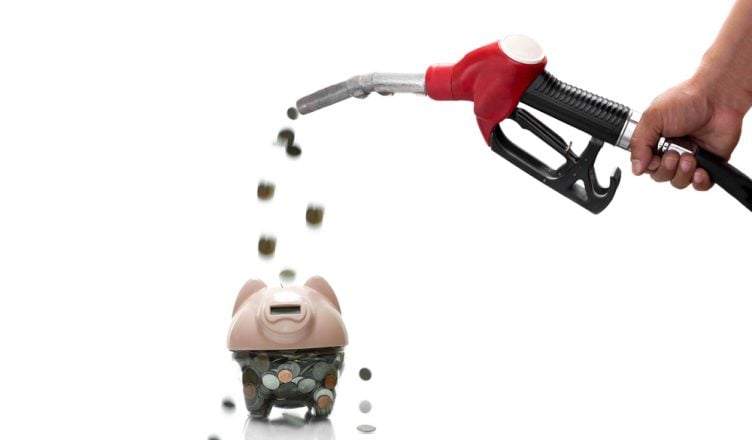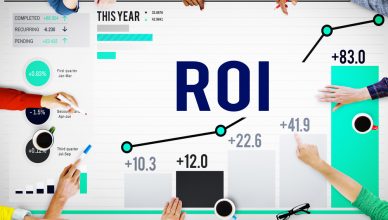You don’t need to be a news junkie to know that gas prices are rising and it’ll probably keep rising. Of course, there will be the usual ups and downs given changing government regulations, natural disasters, political unrest, and the like. But, the current prices of fuel are definitely not what they were five years ago.
The problem with the rising cost of gas is that it can affect any kind of business. You don’t have to be a flight carrier, a limousine service or a courier company to be affected. For example, if you offer cleaning or handyman services, you also have to consider fuel prices for your official vehicles. So, no matter what business you are in, gas expenses can take a big chunk out of your profits.
This is why it’s important to find ways to save on fuel. In this post, we discuss six fuel saving tips to combat the rising gas prices.
#1 Get to Destinations More Efficiently
Planning accurate routes is crucial for every field service business. This may be difficult to do if you still plan routes manually. Not only does manual planning take hours to incorporate the various factors (such as traffic, weather conditions, construction sites, and one-way streets), the result of such route planning is also inaccurate and inefficient.
Luckily, with the use of a trip planner, you can create routes in 30 seconds or less and the routes will always be the most efficient and accurate. In this way, you’re sure to only use the fuel you actually need to get from point A to point B. And, since your employees aren’t rushing from stop to stop due to incorrect routes, they wouldn’t have to speed which further reduces gas usage.
#2 Monitor Your Employees and Vehicles
Driving above the speed limit wastes fuel. So, when your employees take your vehicles out to meet with clients, they must not speed. But, how can you ensure they’re not speeding if you can’t be with them on the road?
A trip planner that offers speed alerts will automatically let you know whenever any field rep crosses the speed limit. As soon as you get the alert, you can contact the rep to reduce his or her speed. Not only will this save you gas, it’ll also guarantee that your employees are safe while they’re out in the field.
Moreover, it’s probable that not all of your employees are honest. For example, some may use your vehicles to run personal errands during official working hours. When they do this, you’re the one shelling out money for the fuel. And, such unscheduled activities will delay your schedule which will upset your customers.
The best route planners come with a GPS tracking feature that helps you monitor your field reps’ whereabouts on the road. In this way, you can immediately know when a rep isn’t following the assigned routes and making unnecessary stops and can then take corrective measures. Also, when your employees know that they’re being monitored, they’ll avoid indulging in such activities.
A route planner can even help you identify if a vehicle is idling for too long as this can also waste gas. For example, if you find that a vehicle is stuck on the same spot for a long time, you can contact the rep immediately and find out what’s happening. If you then learn that they’re taking a cigarette break while just sitting in the car with the engine running, you can tell them to stop it immediately. Alternatively, if you find that the rep has been in an accident, you can send them the help they need to get back on track.
#3 Avoid Overloading Your Vehicles
It’s common sense that when something is heavy, it takes a lot of effort to make it move. And, if you’re in a business that involves your employees moving around heavy equipment, you might already know that the heavier your vehicle is loaded, the more fuel it uses to move.
So, decreasing the vehicle load will save you gas. One way to go about doing this is to balance the weight of the goods among all your vehicles. However, balancing the loads manually can be tedious as it again involves taking into account many factors and complex calculations. Trusted route optimization software takes such worries away.
Want To See For Yourself How Route4Me Can Boost Your Profits?

In addition, there are two types of restrictions that are important to consider when planning routes for vehicles that have special attributes.
First, special vehicles have a limited road network on which to travel. This means that the vehicle’s unique height, weight, and axle count, the presence of hazardous materials, and any other restrictions force it to travel on pre-approved roads to prevent dangerous accidents or simply to comply with transportation laws.
The second restriction to consider is that all vehicles in your fleet have certain maximum limitations that are unique to each vehicle. For example, a box truck can only transport 10 pallets and the weight of these pallets must not exceed 10 tons.
Fortunately, Route4Me automatically plans optimized routes for you while considering the two restrictions simultaneously.
For example, Route4Me’s trip planner has a database of Class A truck route approved roads and will provide a turn-by-turn list of vehicle specific directions. Also, while planning routes, Route4Me will produce those which do not exceed the maximum pallet count or the maximum weight for each vehicle in your fleet. In this way, your commercial vehicles only travel on pre-approved roads and each vehicle’s weight and cubic volume capacity are not exceeded.
#4 Be Proactive with Vehicle Maintenance
If you regularly maintain your vehicles, you can decrease the fuel costs because less fuel is needed for the engine to run smoothly. So, another way to leverage the GPS tracking feature is to use it to plan vehicle maintenance.

For example, a trip planner can help you gather all the information you need to determine which vehicles are due for a tune-up. You can do so by looking at those vehicles that have the highest mileage or those which have been used to drive through steep or rocky roads.
#5 Talk to Your Employees About Fuel Efficiency
It’s important to show your employees the right way to use your official vehicles and how they can help you save on gas. Again, a trip planner can help here.
The best route management software comes with a reporting and analytics feature that offers information on what you are doing and what you can do better in the future. For example, you can set the fuel costs for the different types of gas in a specific area to help you track your expenses to an extremely accurate degree. It also helps you note all your expenses in the smallest detail. A trip planner even comes with a timeline tool to help you see and analyze fuel expenses for selected routes over a given period of time.
With this information, you can give your employees feedback based on their actual driving performance. You can also incentivize them to save gas by offering them a reward for their fuel efficiency efforts, such as gift certificates or a plaque.
#6 Time Your Fuel Purchases
If you look at the data you’ve been collecting through your trip planner, you’ll also find that you can get more fuel in the mornings than in the evenings for about the same amount of money. This is because gas expands whenever it is hot. So, when you purchase gas in the afternoons, you’ll get less than if you did so in the mornings. Although this may seem like small savings, it adds up over time.
So, what strategies do you follow to fight the rising fuel prices? Do you have any questions? Please feel free to leave your comments below.
In addition, here are three quick questions to ensure you understood how you can combat the rising gas prices:
- Why is automated route planning by the fastest route planner helpful in decreasing fuel usage?
- What are the fuel efficiency benefits of monitoring your employees and vehicles?
- Why should you ensure that your vehicles are always well-maintained?
Want To See For Yourself How Route4Me Can Boost Your Profits?







